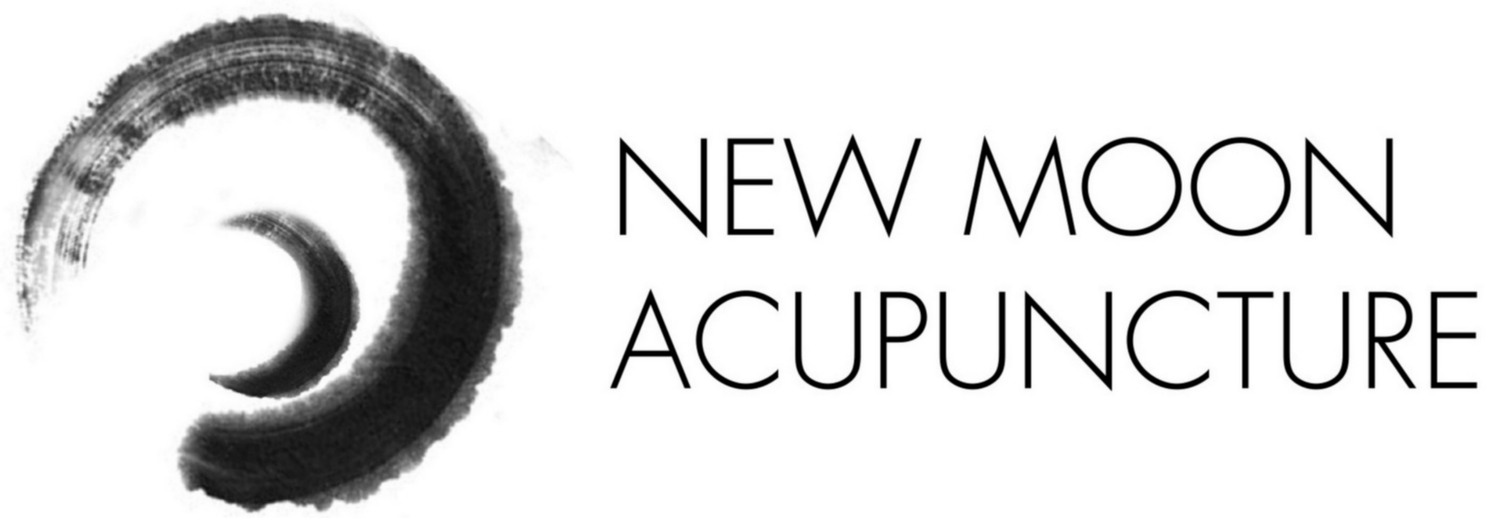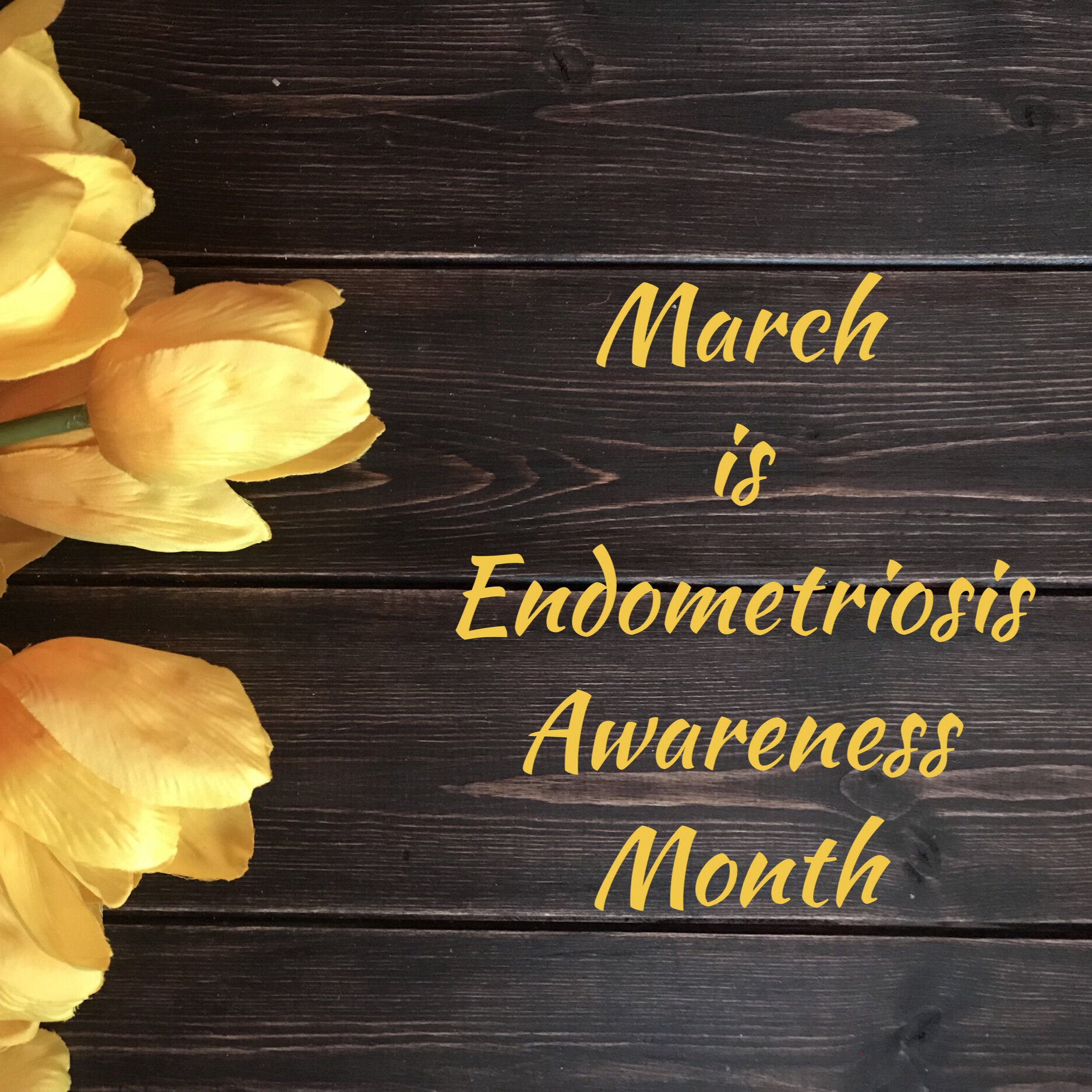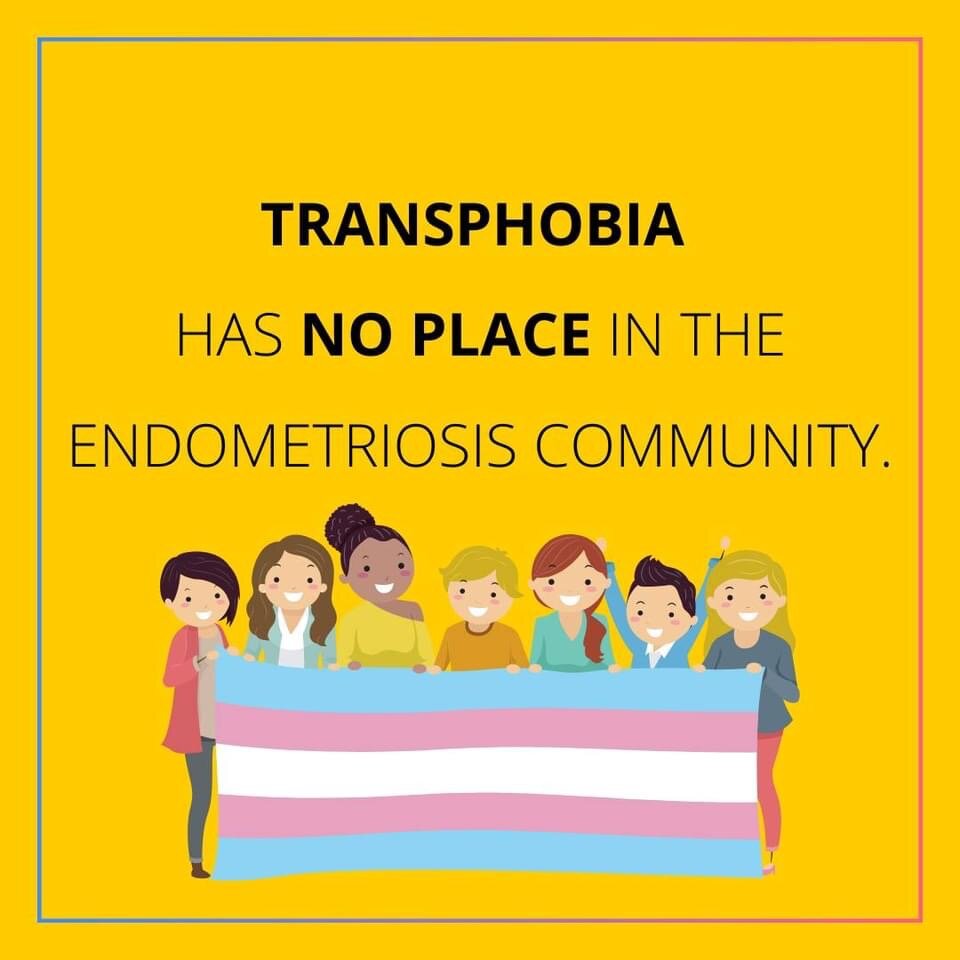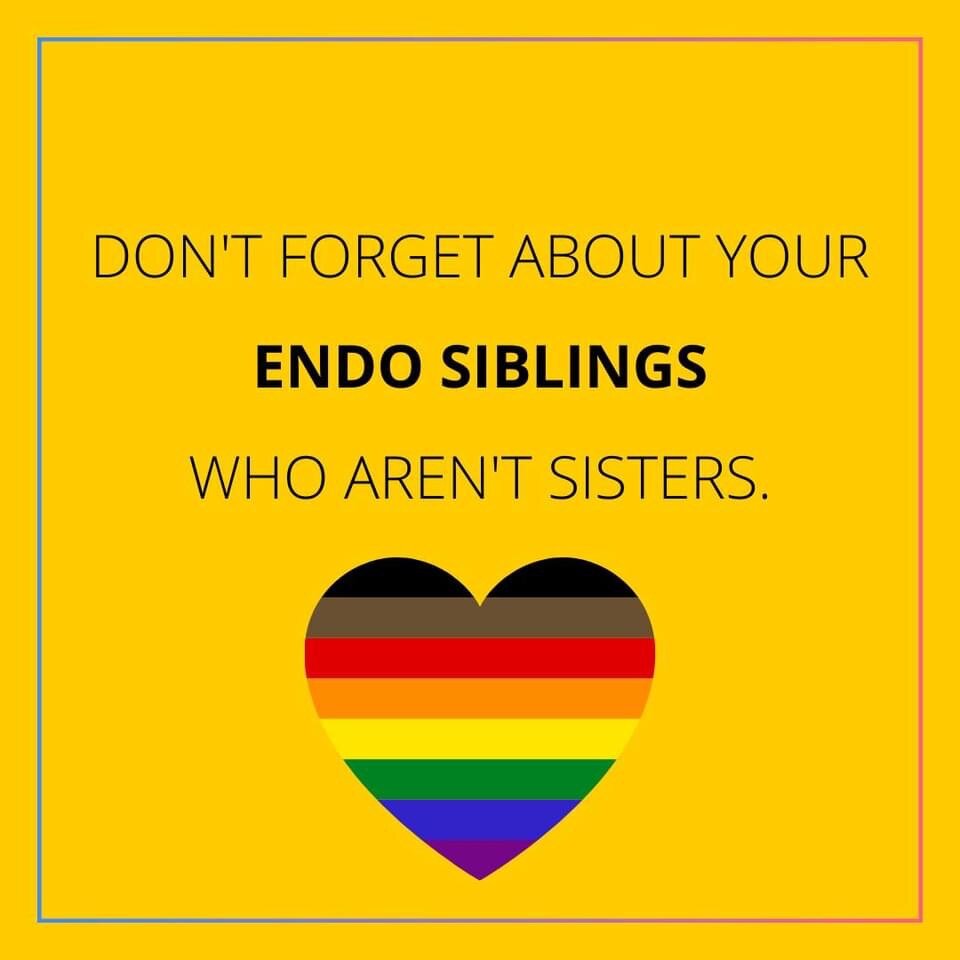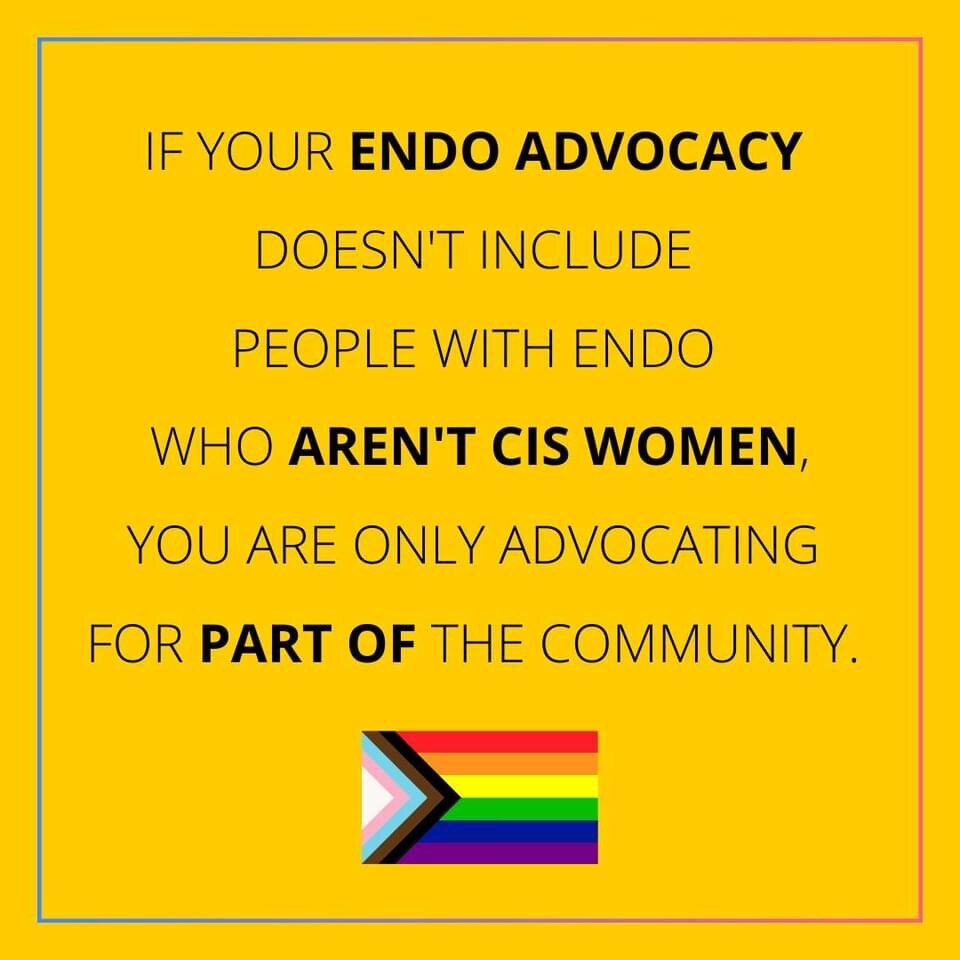My journey with Endometriosis began with the very start of menarche, the onset of my first period. From the start, it was cramping and painful with every cycle. No one told me that this was unusual, and I eventually found out that my mom and aunts on both sides of the family had painful periods that they hid from their husbands, brothers, and fathers. Menstruation was unfortunately something that was hidden, and wasn’t openly acknowledged in not only my family’s Turkish culture, but many other cultures. I used heating pads, hot water bottles, and pain medication to manage as best I could.
Finally, around age 17 I asked my mom to take me to the gynecologist. The doctor gave me an abdominal exam and a pelvic exam and hardly asked me any questions about my cycle - I let her know I had pretty disruptive cramping, but she wasn’t particularly worried since my cycle was a very regular 28 days (I now know that menstrual disorders can occur even with regular menstruation). She said I could try birth control pills (BCP) if I wanted to see how that helped. Since I wasn’t offered any other options or explanations for my pain, I gave it a try. I was told to return in 3 months if I felt no change in my cramping.
Hormonal Management Options
Some people with endometriosis or other menstrual disorders find great relief with hormonal management! As with most prescription treatments, taking hormonal treatments have their pros and cons. In the lens of East-Asian medicine, hormonal treatments cause “stagnation” in the pelvic bowl and in the Liver channel (distinct from the organ liver). This can be seen in the known side effects of blood clots (rare), though it can also show up in small ways over time. Your holistic health practitioner may be able to offer dietary or lifestyle habits to help counteract these effects.
There has not yet been many studies on long term hormonal use and what effects may be seen in the body.
In addition to not offering me pain relief, the BCP hormones made me feel bloated, uncomfortable, and out of control moody. I hated taking them but I also wanted to be free from the pain I was experiencing every month. And so, three months later I was back in the office, where all I was given was a different type of BCP to try. I repeated the process 3 months later, and another 3 months after that. Finally, the doctor told me there aren’t any other BCP prescriptions covered by my insurance, and that was that. I wasn’t given other options for treatment.
I continued on in college where I had other more immediate health issues to address - which is another story altogether. Meanwhile I was taking up to 6 Ibuprofen tablets at a time to be able to attend my classes during my period. I wasn’t comfortable with the fact that I was taking such high dose medication, but didn’t know where else to turn and consoled myself with the fact that it was only a few days every month. Hopefully my digestive system and filtration organs could recuperate from the damage of high doses over the rest of the month….
Having not been helped by my gynecologist for my menstrual issues, and not helped by my PCP and various other specialists for my other health issues, I had been doing my own healthcare research. I played around with my diet and tried to learn about herbal medicine. Finally a friend of mine from high school brought to my attention that his mom practiced acupuncture, albeit a limited form. She was an MD with an acupuncture certificate and a sensitivity for energy medicine. While she understood the limits to her knowledge of East Asian Medicine, her energetic sensitivity allowed her to still accomplish really wonderful acupuncture treatments.
Acupuncture for Endometriosis
For me, acupuncture treatments were like a miracle! As with any treatment, individuals will have varied results. I always recommend giving acupuncture a try for a short series, and possibly even trying it with a few different acupuncturists if you don’t see results the first time. As acupuncture is a personalized medicine, practitioners each have their own approach to treatment and individual approaches may have different effects on each patient. Each acupuncturist will be able to try multiple approaches to treatment, but will still be limited to their particular style and educational background.
Through her I finally learned that my painful menstrual cycles were not normal at all, and I found that I could get a fair amount of relief from acupuncture! This really piqued my interest in acupuncture as a career in a time where I was realizing my chosen course of study through college might not be a great fit for me after all.
About a year and a half later I found myself starting a graduate program in East Asian Medicine in Portland, OR at the National University of Natural Medicine. Through my education I realized that I must have undiagnosed endometriosis at the root of my menstrual issues and likely some of my digestive issues as well. Having not been helped by standard medical care, I did not seek an official diagnosis. I used what I was able to learn at school about diet, through tai ji and regular physical activity, and by receiving regular acupuncture, herbal, naturopathic, and abdominal massage care and finally found real menstrual relief. I finally had what could be considered a completely normal period, managing cramps with nothing more than Wishgarden Cramp Release herbal tincture*. I did find that a particularly stressful few weeks could lead to a heavier bleed or crampier period, but nothing near what I was experiencing in college.
Multi-tiered approach to a complex disease
Many of us know that even if you eat your vegetables, if you’re not getting adequate sleep or exercise you’re still not going to feel great. The same concept applies to a well rounded approach to treatment: most people benefit from having a healthcare team as well as making sure they are putting in the work for a healthy diet, good sleep, and regular exercise. This doesn’t mean your schedule needs to be filled with multiple healthcare appointments every week: you can alternate acupuncture and bodywork appointments, or sprinkle in the occasional naturopathic doctor or functional nutritionist into your schedule.
As with most chronic illnesses though, there are ups and downs. I completed my 4 years masters degree and volunteered abroad in Nepal where I was unable to stick to my usual diet or routine. Travel also takes its toll on your body, and I found I had a smattering of old symptoms and some new pop up. I landed back in the US in upstate NY and started my first acupuncture clinic up while working 2 additional part time jobs. My exercise routine went by the wayside, but I did my best to keep up with my healthy diet. 2 years later I moved to the greater Boston area and started up my new business, while living with a romantic partner for the first time in my life. While these were all positive and exciting life changes - they are still stressful. Old and new symptoms started to creep back in to my life.
I inquired with my primary care doctor about endometriosis, but was again dismissed. I assumed I needed to get back into my strict healthcare routine to find relief. I started up receiving treatments again, and tried my best to find time for exercise. I found fatigue was becoming a bigger and bigger obstacle - I was needing more time to rest and had to choose between exercise, cooking a healthy meal, or an extra hour of sleep. I knew with time as I developed a routine things should theoretically improve, but chronic illnesses don’t always follow predictable pathways. My individual symptoms were clearly improving with my healthcare team’s treatments, and yet I was having relatively frequent “set backs” - a particularly bad period followed by a bigger bout of fatigue that knocked me off my routine, or a new symptom that seemingly popped up out of nowhere.
Then the Covid19 pandemic shut down came. At first it was a relief - while I was immensely stressed by this big unknown, it was an opportunity to use my free time to truly focus in on my healthcare routine. Stress takes its toll, though. I noticed signs of significant hormone fluctuation, and again setbacks in my symptoms. I had the tools to manage each individual symptom as it came up, but they kept coming and coming. I realized I needed to seek additional help. It was time to return to western medicine.
Pandemic Fatigue
There have been a lot of articles already written on the stresses of the pandemic on our everyday lives and psychological state. Even if you haven’t been directly impacted by the virus in the form of illness, your lifestyle has changed significantly the past year. Read more on “How to Not Let Pandemic Fatigue Turn Into Pandemic Burnout”
I touched base with my primary care doctor who, once again, did not think I had endometriosis. She did believe that I was experiencing the symptoms I described, but thought they must have some other cause. She ordered some tests, but on paper I am the perfect picture of health, leaving my symptoms “unexplained”. Finally I simply found an endometriosis specialist, and at age 33, was finally officially diagnosed.
Endometriosis doesn’t always show up on imaging, and mine didn’t show up on ultrasound but did on a contrast MRI. The location of the visible endometria explained a few of my specific symptoms, and so it made sense that it was time to follow through with surgery. The hope is that surgery will give me enough relief and stability that my own natural health methods will become more effective again without constant setbacks.
What is Endometriosis?
Endo is when tissue like the uterine lining grows outside of the uterus. It is most often found in the pelvis, on the intestines or colon, but it can potentially be found anywhere in the body.
The tissue grows and sheds (bleeds) throughout a person’s menstrual cycle along with the regular lining in the uterus, but with no easy way to clear out the discarded tissue it causes inflammation and dysfunction.
Recovery from a surgical procedure as important to long term health outcomes as the procedure itself. It’s recommended to take between 2-6 weeks off from work following endometriosis surgery (more if it becomes necessary to do an open procedure, similar to a cesarean): 2 weeks typically applying to office jobs, 6 to labor intensive jobs. I’ll be taking a month off following my procedure and easing back into work with a limited schedule until I am confident I feel well enough to provide the same quality of care I always strive to provide. I will remain available by email and phone, albeit my responses may be delayed in my initial week post-surgery!
If you’ve made it this far into my blog post (my longest yet!), just know that my story is not unique. Endometriosis takes anywhere between 6-10 years to get diagnosed while actively seeking care, and it is likely that some go undiagnosed for a lifetime. Many people have symptoms much worse than my own, resulting in pain that affects mobility and cognitive function. Some face significant barriers to care, such as trans men with endometriosis that may not get their symptoms taken seriously because of their testosterone treatments - and in some cases testosterone may exasperate endometriosis unless used alongside other treatments. I’ve been lucky that any time I need help I’ve been able to find it one way or another, and thankful to everyone who’s guided me along the way. I am thankful to be able help others find relief in their own endometriosis journeys, whether it’s on my treatment table or by referral to another treatment modality. I can only hope that my continued experience with endometriosis serves to help me be a better care provider.
